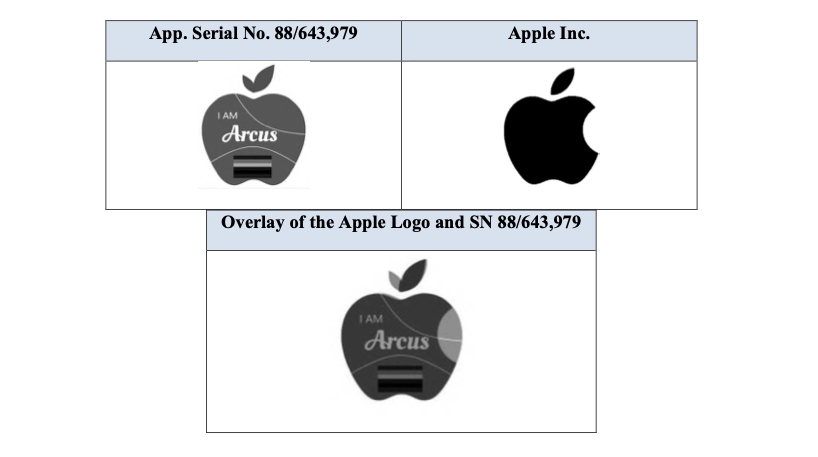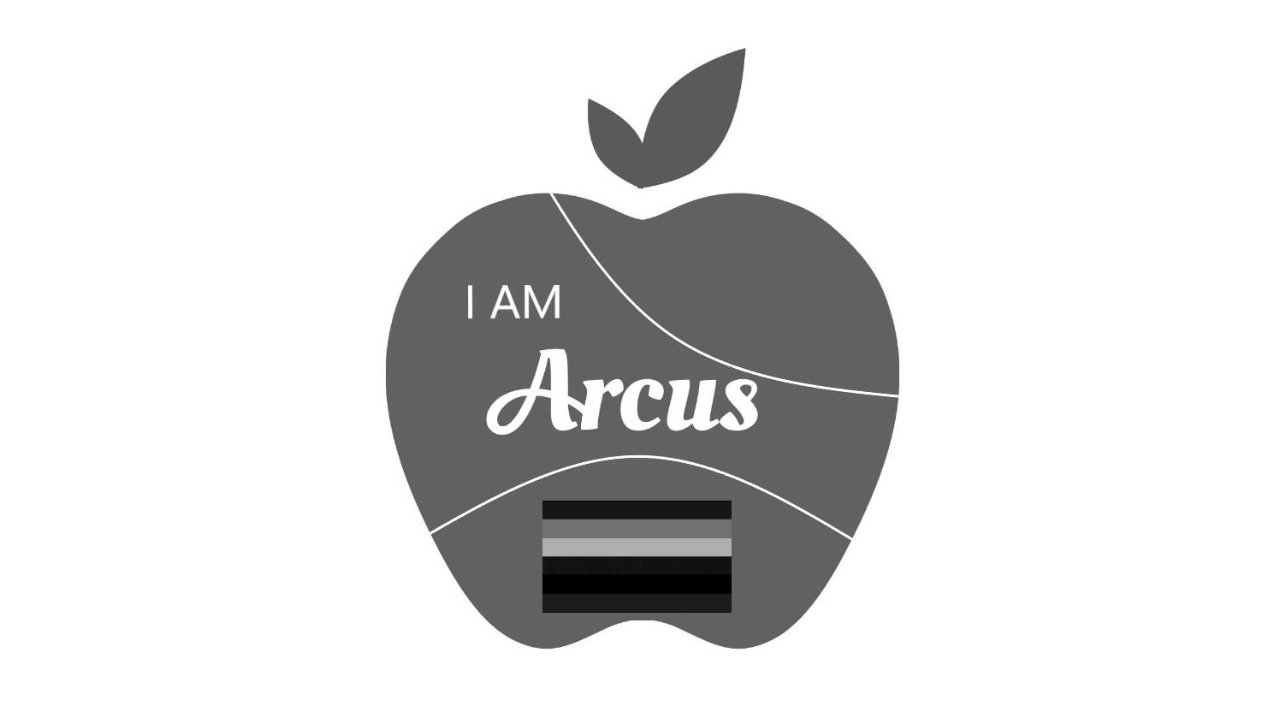Apple is again opposing the trademarking of another company's logo on the grounds that it can readily be confused with its own.
Following its opposition to a Norwegian political party's logo, and its successful trademark dispute with Prepare, Apple is again objecting to a logo design. It has filed a notice of opposition before the Trademark Trial and Appeal Board over Georgette LLC's apple-shaped mark for its bottled water business.
Georgette LLC's logo consists of a whole apple, not one with a bite taken out, and with the words "I am Arcus" written across it. Apple says that this mark "features a stylized apple design with a right-angled, detached leaf, rendering it visually similar to Apple's famous Apple Marks."
Apple's filing includes a side-by-side comparison of the two logos, plus an image overlaying the two. "Indeed, the overall shape of [Georgette LLC's] apple design is nearly identical to the shape of the Apple Logo," says the filing.
 Detail from Apple's opposition filing showing the two logos side by side, plus overlaid to the same size
Detail from Apple's opposition filing showing the two logos side by side, plus overlaid to the same size"In light of the fame of the Apple Marks," it continues, "consumers encountering Applicant's Mark are likely to believe Applicant's Goods offered under Applicant's Mark are associated with, or approved, endorsed, or provided by Apple."
Apple further objects to the use of this logo because it's intended to be used on water bottles, amongst other products. "Since long before Applicant's filing date, Apple has offered identical and/or highly related goods and services under its Apple Marks," says the filing.
Stay on top of all Apple news right from your HomePod. Say, "Hey, Siri, play AppleInsider," and you'll get latest AppleInsider Podcast. Or ask your HomePod mini for "AppleInsider Daily" instead and you'll hear a fast update direct from our news team. And, if you're interested in Apple-centric home automation, say "Hey, Siri, play HomeKit Insider," and you'll be listening to our newest specialized podcast in moments.
 William Gallagher
William Gallagher







-m.jpg)






 Christine McKee
Christine McKee
 Marko Zivkovic
Marko Zivkovic
 Mike Wuerthele
Mike Wuerthele

 Amber Neely
Amber Neely
 Sponsored Content
Sponsored Content
 Wesley Hilliard
Wesley Hilliard










14 Comments
Wow. I didn’t think the pear logo was very close and the Norwegian one has color, but this one looks like a very intentional copy of the Apple logo. Even the Apple outline is identical!
Yeah, normally I think these infringement are pretty spurious, but this one is very similar.
As others have mentioned before, companies need to actively defend their trademark by monitoring trademark filings and objecting to ones they consider too similar. It's considered a best practice for ensuring your own trademark is viewed as valid.
Trademarks aren't words or images, they are words or images used by its owner ALONG WITH its goods and services. If this company sells only bottled water, they are possibly entitled to use a trademark that Apple already uses, since Apple doesn't sell water. They could even call their company "Apple Water." Right now there are 4686 trademarks that contains the word "Apple," some of which are very close to Apple's company name. As long as the company doesn't fall in any of the same lines of business as Apple, they can likely re-use a trademark that Apple uses.
This same mechanism also protected Apple from being sued by the Beatles who owned several "Apple" trademarks themselves. This case was settled in 2007; I presume Apple paid the Beatles to use the same trademarks. They might have even transferred ownership of the marks.
Here are some examples of trademark words that are used by multiple companies that don't sell the same products: Virgin, Delta, United. You may instantly recognize multiple companies that share these identical names/trademarks.
As long as two companies do not share the same goods and services, they can both register the same trademark. At this time the 45 recognized groups of services are:
In the case of Prepare, Prepare sold groceries, but they did it through an app, which made Apple's case stronger against them. In this case I don't see overlap.